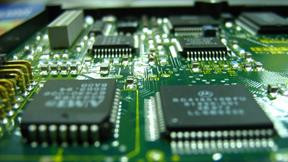The U.S. Commerce Department recently unveiled proposed rules that aim to prevent $52 billion in semiconductor manufacturing and research funding from being exploited by China and other countries of concern.
These rules focus on protecting national security while boosting America's technological advantage, ensuring that semiconductor manufacturing expansion is limited in adversarial countries and restricting joint research or technology licensing with foreign entities of concern.
The proposed rules identify China, Russia, Iran, and North Korea as countries of concern and stipulate that recipients of the CHIPS Incentives Program funding cannot invest in semiconductor manufacturing expansion in these countries. Additionally, the rules classify specific semiconductors as critical to national security, such as current-generation and mature-node chips used in quantum computing, radiation-intensive environments, and other specialized military capabilities. Tighter restrictions are applied to these chips to prevent their misuse by adversaries.
Commerce Secretary Gina Raimondo emphasized the importance of these guardrails, stating that they would "help ensure we stay ahead of adversaries for decades to come." The Commerce Department plans to accept applications for a $39-billion semiconductor manufacturing subsidy program in late June, with the law also establishing a 25% investment tax credit for building chip plants, worth an estimated $24 billion.
In October, the department issued new export controls to prevent China from accessing certain semiconductor chips produced globally using U.S. equipment. This move significantly expanded the department's reach in its efforts to impede Beijing's technological and military advancements.
The recent proposal aims to reinforce these controls by aligning the prohibited technology thresholds for memory chips between export controls and the CHIPS national security guardrails, while also imposing a more restrictive threshold for logic chips.
The Commerce Department is seeking public comments on the Notice of Proposed Rulemaking and encourages industry stakeholders, partners and allies, and other interested parties to provide feedback. The final rule will be published later this year after the 60-day comment period.
The proposed rule is in line with the national security guardrails incorporated in the U.S. Department of the Treasury's Notice of Proposed Rulemaking, detailing the Advanced Manufacturing Investment Credit. This credit is a federal income tax credit for qualifying investments in facilities manufacturing semiconductors or semiconductor manufacturing equipment and is a crucial part of the incentives provided by the CHIPS and Science Act.
The Commerce Department and the Treasury Department have been working closely together to ensure these incentives align with the Biden Administration's economic and national security goals.
The Commerce Department appreciates the input from U.S. partners and allies while developing this proposed rule and looks forward to further collaboration. The U.S. will continue to coordinate with international allies and partners to establish a robust global semiconductor ecosystem, resilient to cybersecurity threats, natural disasters, pandemics, geopolitical conflicts, and more. As technology advances, the U.S. will work with its allies to develop coordinated strategies to prevent the misuse of cutting-edge technology by entities of concern that could undermine the collective economic and national security.





